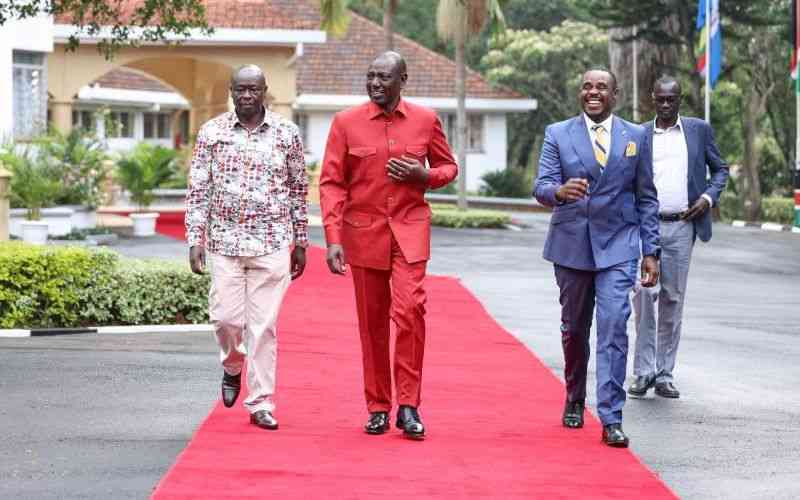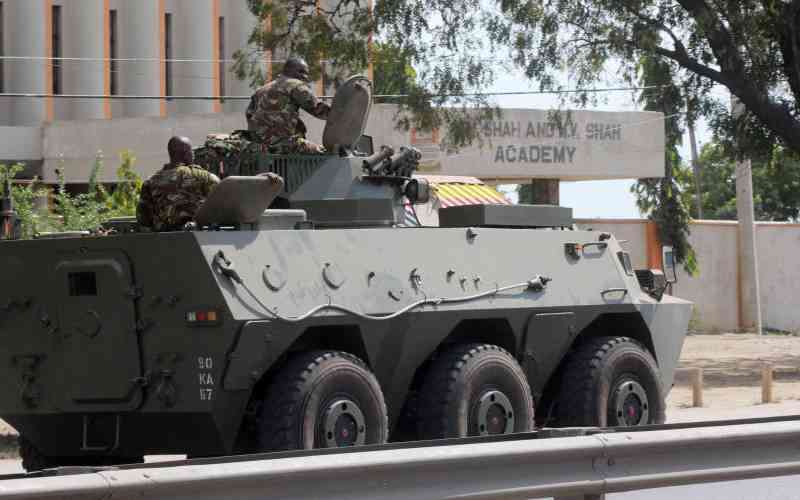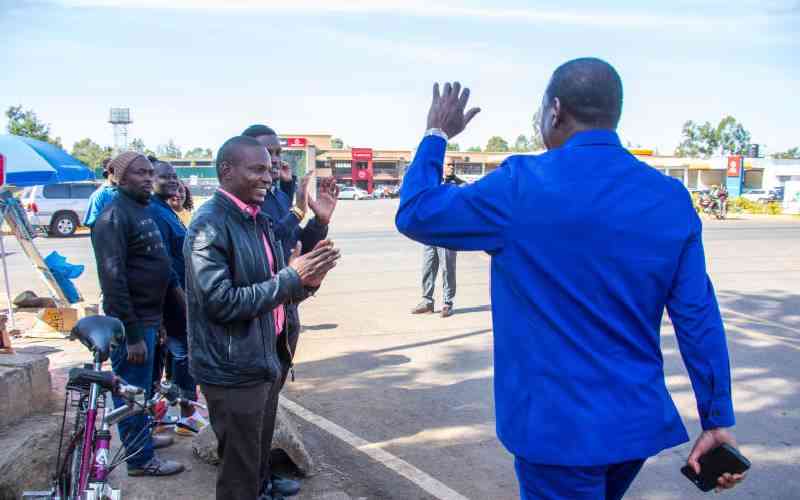The Jubilee Government has promised to turn around the National Youth Service (NYS) training to benefit the youth more than in the past.
Kenyans got a glimpse of the new NYS on September 10, when President Uhuru Kenyatta unveiled it during a recruits passing out parade in Gilgil. "At independence, the challenges facing the nation were reflected in the vision and orientation of the service. Our youth now confront modern challenges, the vision now need adaptation for our times," the President said.
He revealed radical changes in the transformed NYS but from a draft document seen by The Standard on Saturday, that was just a tip of the iceberg. The proposed plan, would be revolutionary to the way the country treats its youth. Or a disaster, if politicised.
It is a brave and ambitious document, calling for drastic changes at the institution. It proposes, among other things, changes at the top, do away with generational status quo and bring in new blood who will buy into the new vision. In May, top management of NYS was changed amid uproar.
Titled, The 5-Point Vision for a New NYS A Framework for Re-structuring, and drafted for the Ministry of Devolution and Planning March 2014, it is designed around one of Jubilee's pledges, that it will create "...a transformative youth empowerment." In view of this, indicates the document, "The vision for the New NYS should be to catalyse transformative youth empowerment in Kenya."
Thus in a year, 21,870 youths will be recruited to the NYS and in turn they will be expected to 'disciple' 227,670 youths annually. After service, the 227,670 youths will be organised in groups of 15 youths per squad with a total of 323 squads per county.
Borrowing from Rwanda and Ethiopia, the youths will be initiated into another of the government's project, Nyumba Kumi. The plan is divided into two, the programme restructuring pillars and institutional restructuring. Part of the programme pillar is already activated under the National Service and Youth re-socialisation, in one of its eight functional units; Slums Civil Works and Public Environment.
Devolution Cabinet Secretary Ann Waiguru says the new vision is expected to drive the service through the next 50 years. "It is organised under a new 5-pillar vision 'to catalyse transformative youth empowerment in Kenya' adding it is one of the seven pledges made by Jubilee government to Kenyans; to create transformative youth empowerment.
"In line with government's plans to re-socialise the youth, NYS service men and women will be expected to transfer knowledge and skills to the community who they will be working with. In addition to the on-going slum upgrading programme, the NYS will be involved in 6 other programmes that include; Agricultural projects, Dam and Road Construction, Vector Control, Slums Civil Works, Huduma Kitchens, Public Security and Traffic Control," she adds.
In September, President Kenyatta launched a NYS clean-up exercise in Kibera, implemented by Ms Waiguru's ministry. In future, you will also see the NYS service men and women collaborating with the local youth in the 'disciple model' battling mosquitoes, tsetse flies and fleas in an estate near you.
The draft puts a formula on how, the rank and the number of NYS who will carry each of the programmes. In the same pillar, apart from battling the disease spreading insects, the youth will be marshaled to build roads, construct dams and even control traffic.
And in a move perhaps to relieve the constrained Police service, NYS will have a Public Security Unit of 'brigade-plus service men or women. The unit will be used to secure non-strategic government installations and drive VIPs.
NYS will undertake other duties but perhaps the most radical change, is the call to set a private security company and which is bound to elicit a battle cry from established private security firms. This security firm will be an exit plan for the NYS graduates where NYS will be formerly contracted by private corporations and government agencies.
"The assumption is that having undergone the paramilitary program at basic training level, they will make very thorough and professional guards," the document indicates. These are but a few of the highlights, of a process which already has roused the hornet's nest.
And pray, what will happen if this paramilitary trained youths turn rogue, perhaps due to unemployment and disillusionment? They can easily be entrenched in proscribed terror groups like Mungiki, and Al Shabaab.
Stay informed. Subscribe to our newsletter
The drafters seem to have thought of this. "We cannot churn-out an army of 21,870 each year, without creating a system of command and control." They recruits will be groomed from enrollment until they are handed over to the market.
 The Standard Group Plc is a
multi-media organization with investments in media platforms spanning newspaper
print operations, television, radio broadcasting, digital and online services. The
Standard Group is recognized as a leading multi-media house in Kenya with a key
influence in matters of national and international interest.
The Standard Group Plc is a
multi-media organization with investments in media platforms spanning newspaper
print operations, television, radio broadcasting, digital and online services. The
Standard Group is recognized as a leading multi-media house in Kenya with a key
influence in matters of national and international interest.
 The Standard Group Plc is a
multi-media organization with investments in media platforms spanning newspaper
print operations, television, radio broadcasting, digital and online services. The
Standard Group is recognized as a leading multi-media house in Kenya with a key
influence in matters of national and international interest.
The Standard Group Plc is a
multi-media organization with investments in media platforms spanning newspaper
print operations, television, radio broadcasting, digital and online services. The
Standard Group is recognized as a leading multi-media house in Kenya with a key
influence in matters of national and international interest.








